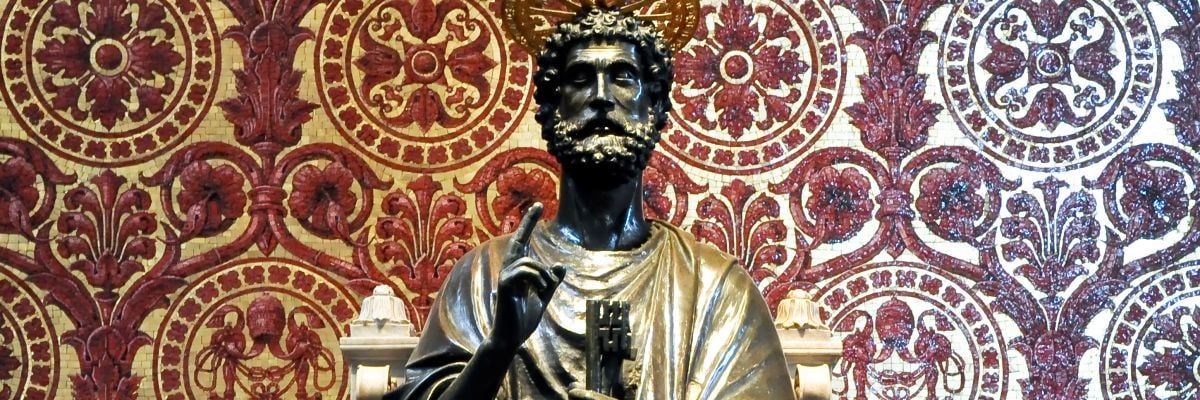
DAY 105
CHALLENGE
“The pope can’t be infallible. Paul opposed Peter at Antioch ‘because he clearly was wrong’ (Gal. 2:11, NABRE).”
DEFENSE
This involves a straw man argument.
The Church holds the pope engages the Church’s infallibility “when, as supreme pastor and teacher of all the faithful—who confirms his brethren in the faith—he proclaims by a definitive act a doctrine pertaining to faith or morals” (CCC 891).
To proclaim a doctrine “by a definitive act” means he has to use language that indicates the matter is permanently settled. To define a matter means to completely end it (Latin, definire, “to define,” from de-, “completely,” and finis, “end”).
Peter was not attempting to do this at Antioch. Indeed, he wasn’t proclaiming a doctrine at all. He simply stopped eating meals with Gentiles in order to keep harmony between Jewish and Gentile Chris- tians (Gal. 2:12). He knew that Gentile Christians did not need to be circumcized and become Jews. It was through him that God made this point (Acts 10), he defended it more than once (Acts 11:1–18, 15:7–11), and Paul acknowledged that Peter knew this (Gal. 2:15–16).
Paul thought that, in context, Peter’s attempt to accommodate Jewish sensibilities sent the wrong signal, and he criticized him on that ground, but the fact remains that Peter was not proclaiming a teach- ing—much less claiming to settle the matter definitively. A pope’s choice of lunch companion does not engage the Church’s infallibility.
To work, this objection would have to vastly expand the number of situations in which papal infallibility applies—way beyond the situations the Church claims it applies in. It therefore commits the straw man fallacy by attacking a position the Church does not hold.
Paul held that Peter made a mistake in this situation, but popes can make mistakes—except in the content of their teaching when they definitively proclaim a doctrine of faith or morals. That didn’t happen here.
Further, since the greater charism of inspiration entails the lesser charism of infallibility, if the Antioch incident meant Peter couldn’t exercise the Church’s infallibility, it would also prevent him from writing 1 and 2 Peter as inspired Scripture.
TIP
After Acts 15, Paul also accommodated Jewish sensibilities by circumcizing Timothy (Acts 16:3). The objection thus would similarly endanger Paul’s letters as Scripture.



